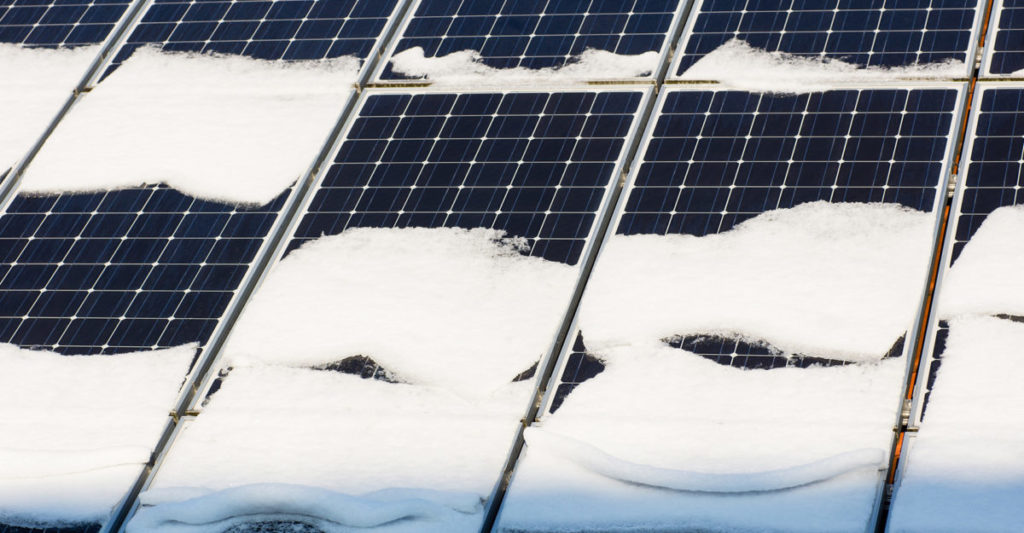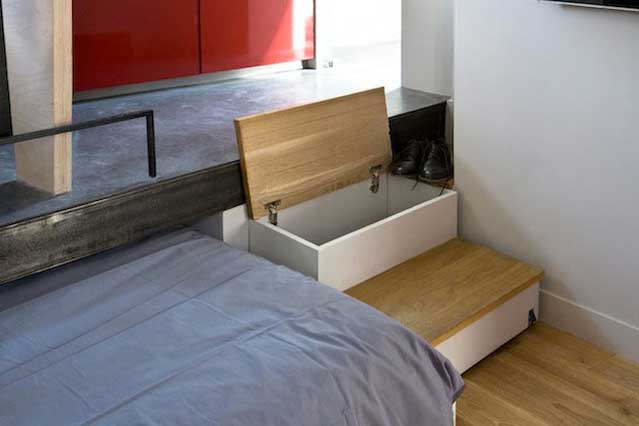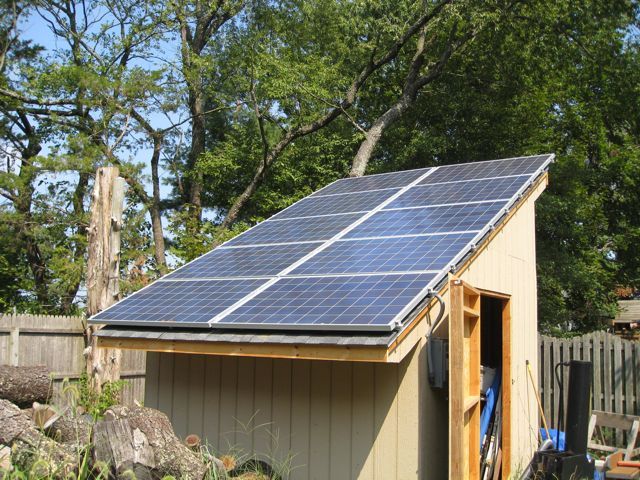Frigid climates can pose significant challenges when it comes to choosing the right off-grid energy solutions.
Harsh winters, long cold spells, and limited sunlight during the day can make it difficult to power your home or business reliably and efficiently.
However, with the latest technology advancements and careful planning, it is still possible to achieve a comfortable and self-sufficient living in even the coldest of climates.
We’ll explore the best off-grid energy solutions for frigid climates, taking into account factors such as fuel efficiency, durability, ease of installation, and overall cost-effectiveness.
By examining the advantages and disadvantages of each option, you can make an informed decision about which system is right for your needs and budget.
Consider a hybrid system
A hybrid system that combines solar power, wind power, and a battery bank can provide a reliable and consistent source of energy, even in frigid climates. This is because the different energy sources can complement each other, ensuring a consistent supply of power.
The combination of these energy sources ensures a consistent supply of power, as each source can contribute to meeting the energy demands in a unique way.
For example, during periods of low wind speed or limited sunlight, the battery bank can provide a reliable source of energy, drawing upon the stored energy from the solar and wind power sources.
The hybrid system can utilize solar power during the day and wind power at night, ensuring a seamless transition between energy sources and reducing the need for backup power sources.
This innovative system design allows for a consistent and reliable source of energy, even in challenging climates, making it an attractive option for those looking to reduce their carbon footprint and rely on clean, renewable energy sources.
Choose the right batteries
Batteries that are specifically designed for cold climates can be more effective and last longer. These batteries are designed to maintain their capacity and performance even in extreme cold temperatures.
When it comes to powering your home or business in cold climates, choosing the right batteries can make all the difference in their effectiveness and longevity.
Standard batteries may not be designed to withstand extreme cold temperatures, which can cause them to lose capacity and fail earlier than expected.
However, batteries that are specifically designed for cold climates are built with special materials and technologies that enable them to maintain their capacity and performance even in sub-zero temperatures.
These batteries are designed to keep your equipment and devices running smoothly and efficiently, even when the mercury drops.
By investing in the right batteries for cold climates, you can ensure that your equipment and devices continue to function optimally, reducing downtime and increasing productivity.
These specialized batteries can last longer and require fewer replacements, saving you money and hassle in the long run.
Insulate your system
Proper insulation of your off-grid energy system can help ensure that it functions optimally in frigid climates. Insulation can help keep the system components from getting too cold, which can improve their performance and longevity.
Insulating your off-grid energy system is a important step to ensure optimal performance in frigid climates.
Proper insulation helps to maintain a consistent temperature range for the system components, preventing them from getting too cold and ensuring optimal performance.
Insulation materials such as foam board, fiberglass, and reflective insulation can be used to cover exposed pipes, wiring, and equipment.
Sealing any gaps or cracks in the system’s components and enclosure can help to prevent heat loss and keep the system warm.
By taking these measures, you can ensure that your off-grid energy system functions at its best, even in the coldest of temperatures, and improve its longevity.
Invest in a backup generator
A backup generator can provide a reliable source of energy during periods of extreme cold weather. This is especially important if you live in an area with frequent power outages or if you have a high energy demand.
Investing in a backup generator is a important decision to ensure a reliable source of energy during periods of extreme cold weather.
These generators can provide a steady supply of power to your home, especially during extended power outages caused by harsh weather conditions.
In areas prone to frequent power outages, a backup generator can be a lifesaver, keeping your home warm and well-lit even when the grid is down.
If you have a high energy demand, such as a large household or a home with multiple electricity-intensive appliances, a backup generator can help ensure that you have enough power to meet your needs.
When selecting a backup generator, it’s important to consider your specific energy needs and the size of your home.
A generator with enough power to run your essential appliances, such as your heating and cooling system, refrigerator, and lights, is essential.
Look for a generator with a high power output and a low noise level, as you’ll want to minimize the noise and vibrations that can disrupt your daily routine.
In addition to providing a reliable source of energy, backup generators can also be a cost-effective solution in the long run.
While the initial investment may be higher, the savings from avoided power outages and the increased energy efficiency can quickly add up.
Plus, with proper maintenance, a backup generator can last for many years, providing a reliable source of energy even during the most extreme weather conditions.
Overall, investing in a backup generator is a wise decision for any homeowner looking to ensure a reliable source of energy during periods of extreme cold weather.
With proper selection and maintenance, a backup generator can provide peace of mind, saving you from the inconvenience and potentially dangerous consequences of prolonged power outages.
Consider a diesel-powered generator
Diesel-powered generators are more efficient and reliable in cold climates compared to gasoline-powered generators. This is because diesel fuel burns more cleanly and efficiently in cold temperatures, reducing the risk of engine failure.
Diesel-powered generators are the superior choice for cold climate applications due to their increased efficiency and reliability.
Unlike gasoline-powered generators, diesel fuel burns more cleanly and efficiently in cold temperatures, reducing the risk of engine failure.
This is because diesel fuel has a higher energy density than gasoline, which means it can generate more power per unit of fuel consumed.
Diesel engines are designed to run at a lower compression ratio, which allows them to maintain a more consistent and efficient combustion process in cold temperatures.
This means that diesel-powered generators can produce more power while using less fuel, making them a more cost-effective and environmentally friendly option for cold climate applications.
Furthermore, diesel-powered generators are less prone to vapor lock, which can be a common problem in cold climates with gasoline-powered generators.
Overall, diesel-powered generators are the best choice for reliable and efficient power generation in cold climates.
Choose the right solar panels
Solar panels designed for cold climates can be more effective and efficient. These panels are designed with special coatings or materials that can prevent snow and ice buildup, ensuring maximum energy output.
When selecting solar panels for cold climates, it’s essential to choose the right ones to ensure maximum energy output and efficiency.
Solar panels designed specifically for cold climates are equipped with special coatings or materials that prevent snow and ice buildup, allowing them to operate at their peak performance.
These coatings can include hydrophobic materials that repel water and prevent ice formation, as well as anti-reflective coatings that improve light absorption.
Some solar panels come with heating systems that melt snow and ice, ensuring continuous energy production.
By investing in cold-climate solar panels, you can enjoy a more efficient and effective energy system, even in the harshest winter conditions.
Monitor your system closely
In frigid climates, it’s essential to monitor your off-grid energy system closely to ensure that it’s functioning optimally. Monitoring can help identify any issues or malfunctions before they become major problems.
In order to ensure the optimal performance of your off-grid energy system in frigid climates, it’s important to monitor it closely.
This includes regularly checking the battery levels, solar panel output, and system temperatures to ensure that they are all within the normal operating ranges.
Monitoring your system closely can help identify any issues or malfunctions before they become major problems, such as frozen batteries or snow-covered solar panels.
By monitoring your system, you can take preventative measures to address any issues and ensure that your off-grid energy system continues to provide reliable and consistent power throughout the winter months.
Monitoring your system closely can also help you identify areas for improvement and make any necessary adjustments to optimize your system’s performance.
Consider a thermal energy storage system
A thermal energy storage system can store excess energy during periods of low demand and release it during periods of high demand, such as during extreme cold snaps. This can help ensure a stable energy supply and reduce the risk of power outages.
A thermal energy storage system (TES) can play a important role in ensuring a stable energy supply during periods of extreme demand, such as during extreme cold snaps.
When the demand for energy is low, excess energy can be stored in the form of heat or cold, depending on the season, using a TES system.
During periods of high demand, such as during a cold snap, the stored energy can be released to meet the increased demand, reducing the risk of power outages.
This is particularly important in areas with fragile power grids or during periods of high energy consumption, such as winter.
In addition to providing a stable energy supply, TES systems can also help to reduce the strain on the grid during peak usage periods, helping to prevent blackouts and ensuring a more reliable energy supply.
Overall, TES systems offer a valuable tool for utilities and energy providers to manage energy demand and supply, helping to ensure a stable and resilient energy infrastructure.
Want More? Dive Deeper Here!
Hey there! If you’re the type who loves going down the rabbit hole of information (like we do), you’re in the right spot. We’ve pulled together some cool reads and resources that dive a bit deeper into the stuff we chat about on our site. Whether you’re just killing time or super into the topic, these picks might just be what you’re looking for. Happy reading!
- Shedding Snow and Powering UP: Researchers Track Ways to Boost Solar Power in Snowy Climates | Michigan Tech Research Blog
- How off-grid cold storage systems can help farmers reduce post-harvest losses | Brookings
- An off-grid energy future requires learning from the past | Brookings
- What are the best policies to transition home heating away from oil and gas? | MIT Climate Portal
- Deep Winter Greenhouses | UMN Extension






